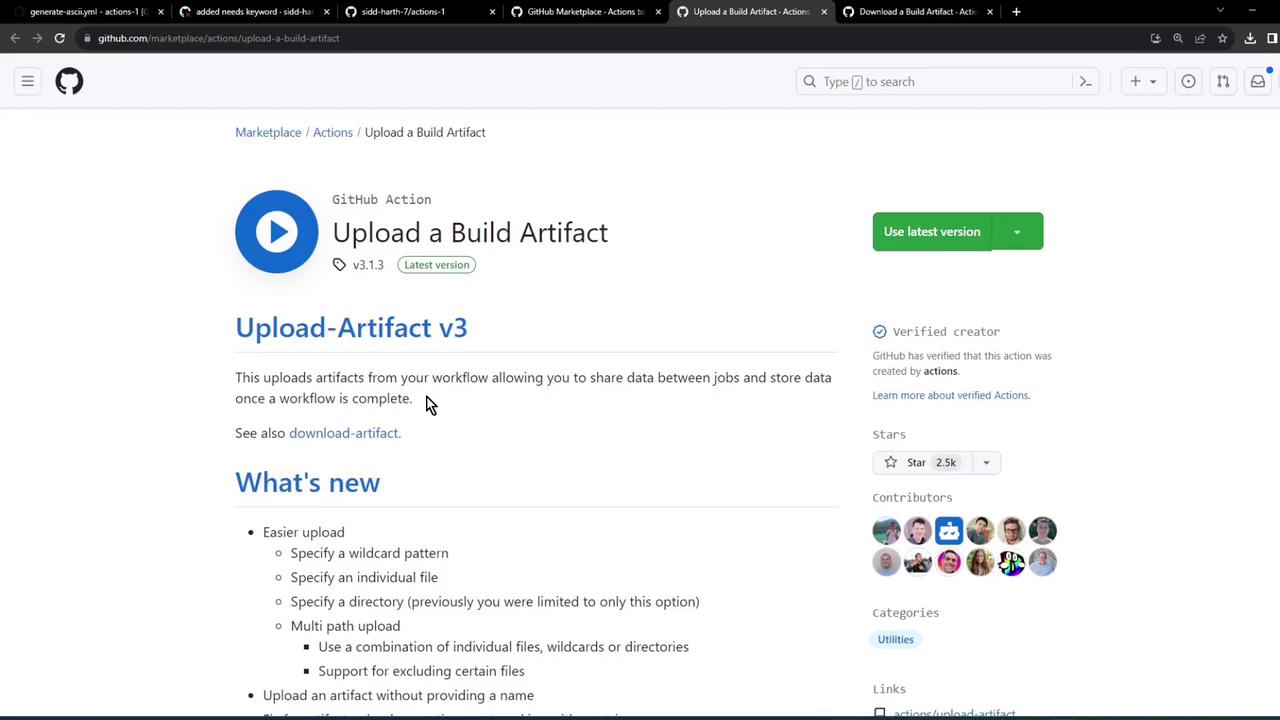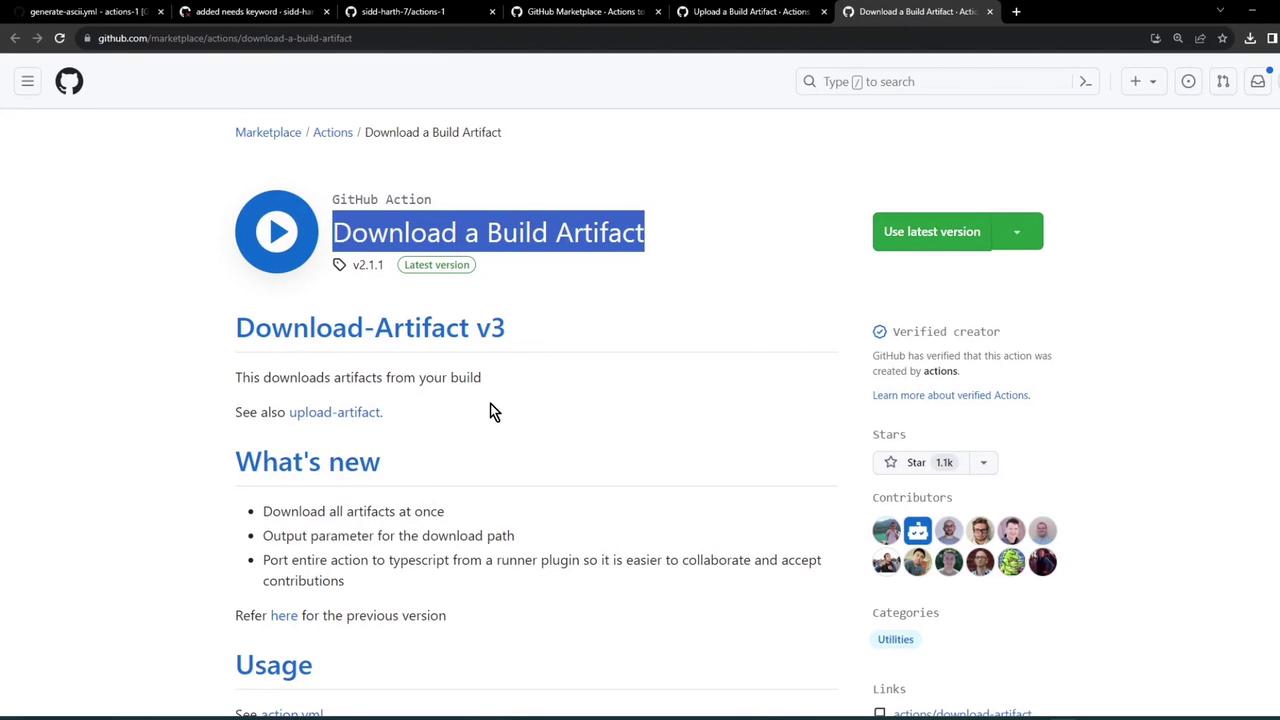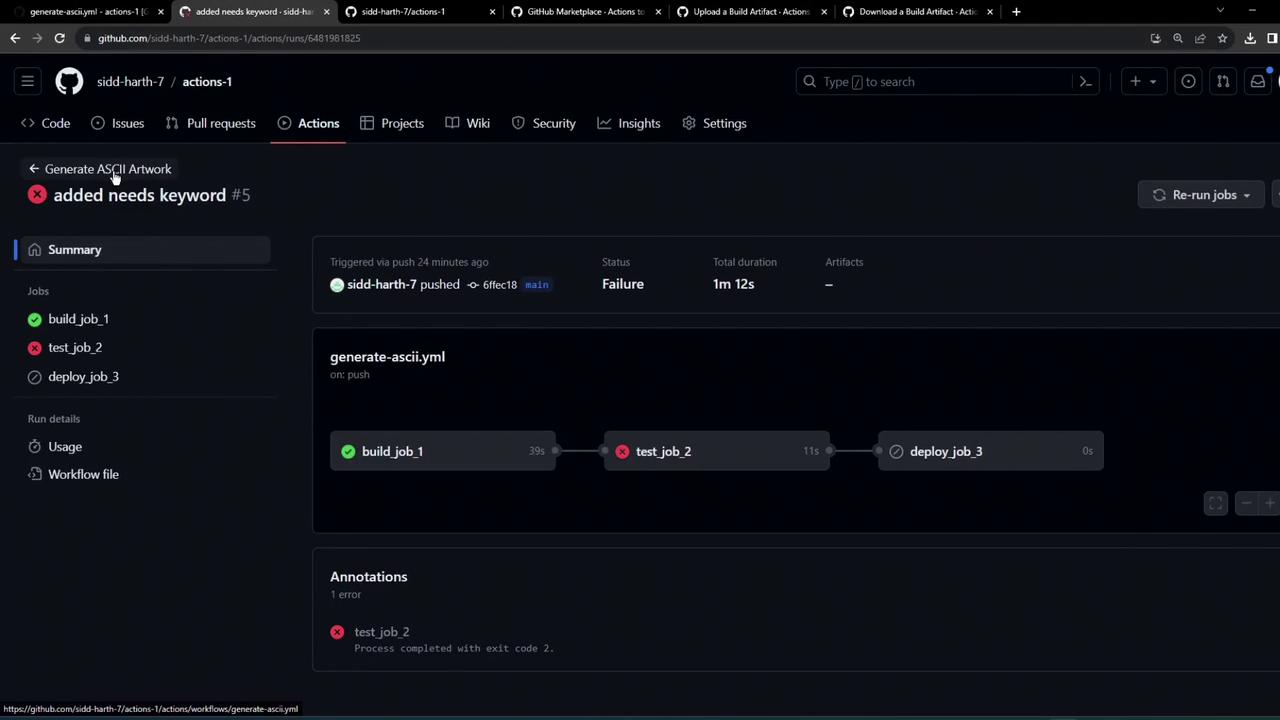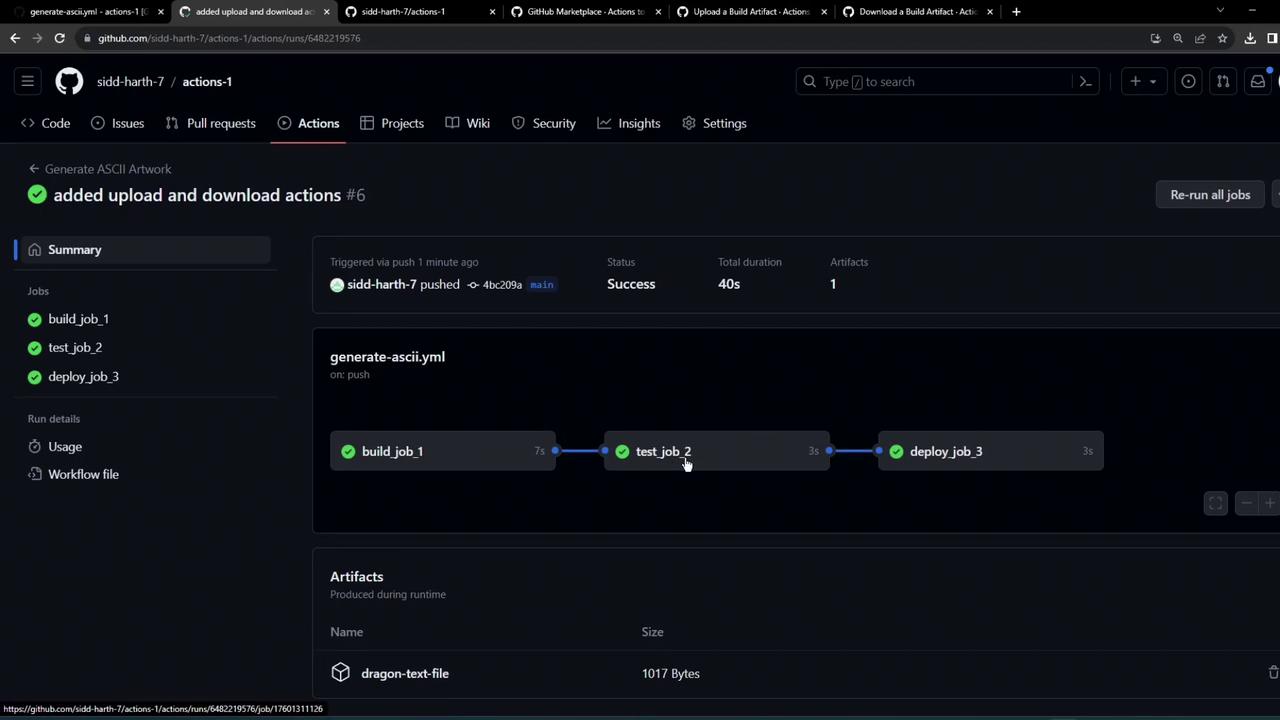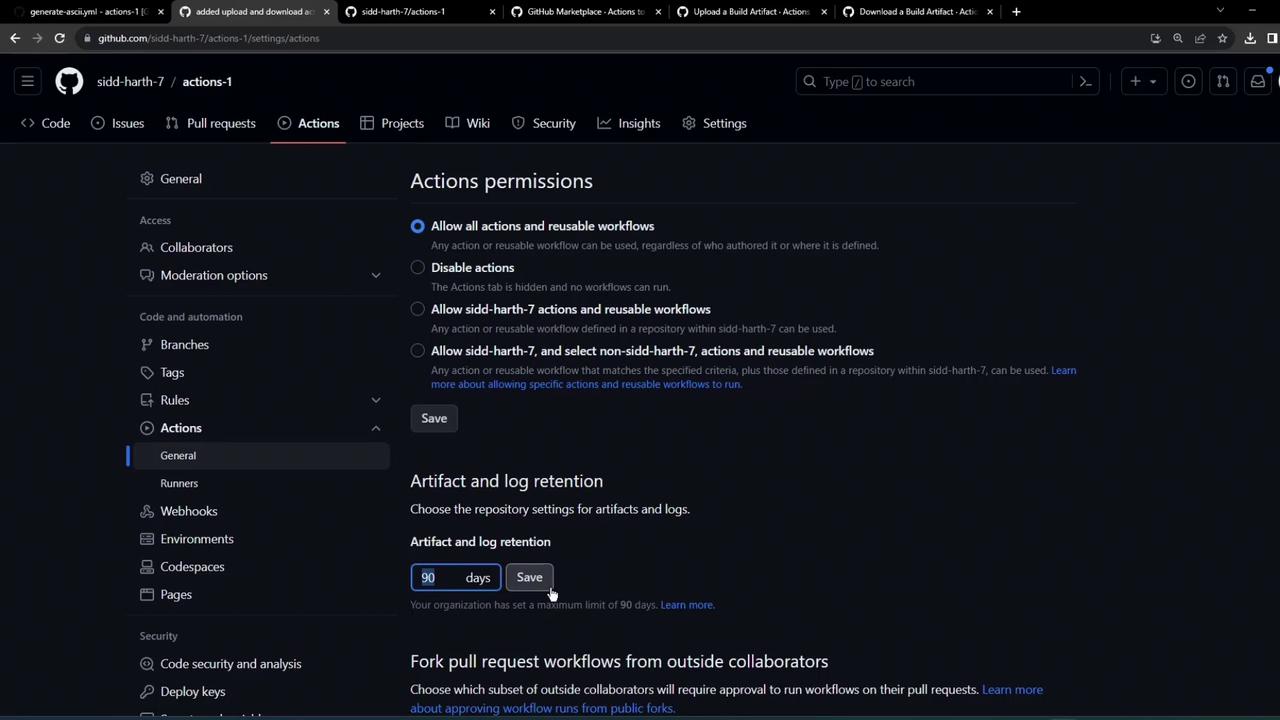Sharing data files across jobs in a multi-job GitHub Actions workflow is easy with the upload and download artifact actions. In this guide, you’ll learn how to create a simple ASCII art file in one job, upload it as an artifact, then download and use it in subsequent test and deploy jobs.
This example uses the Ubuntu runner and the cowsay utility to generate a dragon.txt file. You can adapt it to any file or command. 1. Initial Workflow Structure Below is a basic workflow that generates a dragon.txt file but does not yet share it between jobs:
name : Generate ASCII Artwork on : push : jobs : build_job_1 : runs-on : ubuntu-latest steps : - name : Install Cowsay Program run : sudo apt-get install cowsay -y - name : Execute Cowsay run : cowsay -f dragon "Run for cover, I am a DRAGON....RAWR" >> dragon.txt test_job_2 : # ... deploy_job_3 : # ...
To pass files from build_job_1 to downstream jobs, use the actions/upload-artifact and actions/download-artifact actions.
2. Uploading Artifacts Use actions/upload-artifact@v3 to upload files or directories as build artifacts. Here’s the minimal syntax:
steps : - uses : actions/checkout@v3 - run : mkdir -p path/to/artifact - run : echo hello > path/to/artifact/world.txt - uses : actions/upload-artifact@v3 with : name : my-artifact path : path/to/artifact/world.txt
Parameter Description nameA unique identifier for the artifact pathFile or directory to upload
3. Downloading Artifacts In downstream jobs, invoke actions/download-artifact@v3 to retrieve the artifact:
steps : - uses : actions/download-artifact@v3 with : name : my-artifact path : path/to/artifact
4. Integrate Upload in the Build Job Modify build_job_1 to upload the generated dragon.txt:
name : Generate ASCII Artwork on : push : jobs : build_job_1 : runs-on : ubuntu-latest steps : - name : Install Cowsay Program run : sudo apt-get install cowsay -y - name : Execute Cowsay run : cowsay -f dragon "Run for cover, I am a DRAGON....RAWR" >> dragon.txt - name : Upload Dragon text file uses : actions/upload-artifact@v3 with : name : dragon-text-file path : dragon.txt
5. Download in the Test Job Ensure test_job_2 depends on build_job_1 and downloads the artifact before running assertions:
test_job_2 : needs : build_job_1 runs-on : ubuntu-latest steps : - name : Download Dragon text file uses : actions/download-artifact@v3 with : name : dragon-text-file - name : Verify Content run : grep -i "dragon" dragon.txt
6. Download in the Deploy Job Similarly, pull the artifact in deploy_job_3 to read and then deploy:
deploy_job_3 : needs : test_job_2 runs-on : ubuntu-latest steps : - name : Download Dragon text file uses : actions/download-artifact@v3 with : name : dragon-text-file - name : Display File run : cat dragon.txt - name : Deploy run : echo "Deploying ......"
7. Workflow in Action When you push these changes, GitHub Actions uploads and downloads the artifact across jobs.
Once all steps are configured correctly, the workflow completes successfully and the artifact persists in the workflow summary.
Sample Download Log Run actions/download-artifact@v3 Starting download for dragon-text-file Directory structure has been setup for the artifact Total number of files that will be downloaded: 1 Artifact dragon-text-file was downloaded to /home/runner/work/actions-1/actions-1 Artifact download has finished successfully Run cat dragon.txt Run for cover, i am a DRAGON... RAWR
8. Artifact Retention Policy By default, uploaded artifacts are retained for 90 days. To adjust this setting:
Go to your repository’s Settings → Actions → Artifact and log retention .
Update the retention period as needed.
Setting Default Location Artifact retention period 90 days Repository settings under Actions
Increasing retention beyond 90 days may count against your GitHub storage quota.
References 